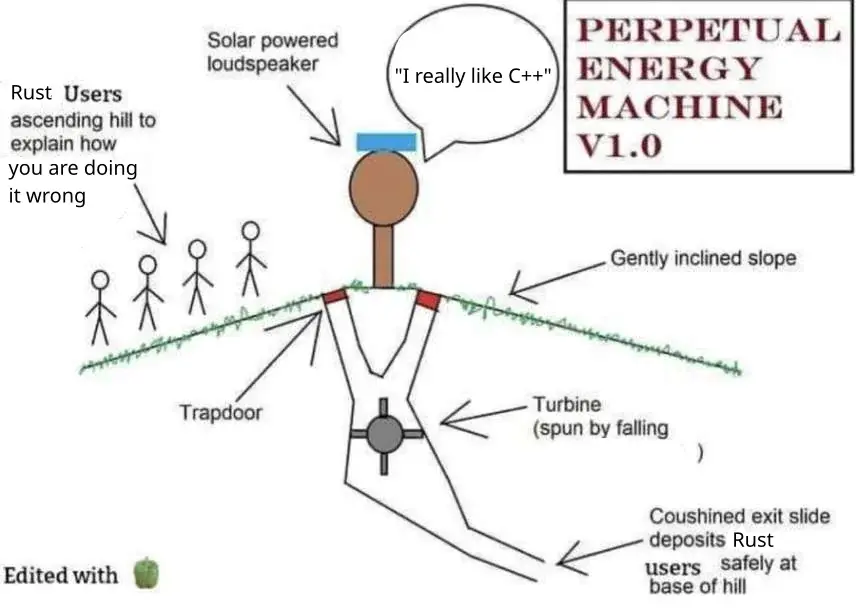this post was submitted on 15 May 2024
591 points (97.0% liked)
Programmer Humor
19623 readers
2 users here now
Welcome to Programmer Humor!
This is a place where you can post jokes, memes, humor, etc. related to programming!
For sharing awful code theres also Programming Horror.
Rules
- Keep content in english
- No advertisements
- Posts must be related to programming or programmer topics
founded 1 year ago
MODERATORS
you are viewing a single comment's thread
view the rest of the comments
view the rest of the comments

C++ is just as "safe" as Rust if you use modern language features (std::unique_ptr, for instance). I would argue that anyone who says Rust provides better memory safety than C++ most likely is not familiar with modern C++ and still sees the language as "C with classes."
As someone whose first language was C, I plan to never use C++ for anything more than programming an Arduino precisely because of the multitude of pointer types. A pointer should just be a pointer. Having five hundred different flavors of pointers is confusing as fuck.
Smart pointers model ownership. Instead of (maybe) a comment telling you if you have to free/delete a returned pointer this information is encoded into the type itself. But that's not all, this special type even handles the whole deleting part once it goes away.
Since they model ownership you should only use them when ownership should be expressed. Namely something that returns a pointer to a newly allocated thing should be a
std::unique_ptrbecause the Callie has ownership of that memory. If they want to share it (multiple ownership of the object) there's a cheap conversion tostd::shared_ptr.How about a function that takes in an object cause it wants to look at it? Well that doesn't have anything to do with ownership so make it a raw pointer, or better yet a reference to avoid nullability.
What about when you've got a member function that wants to return a pointer to some memory the object owns? You guessed it baby raw pointer (or again reference if it'll never be null).